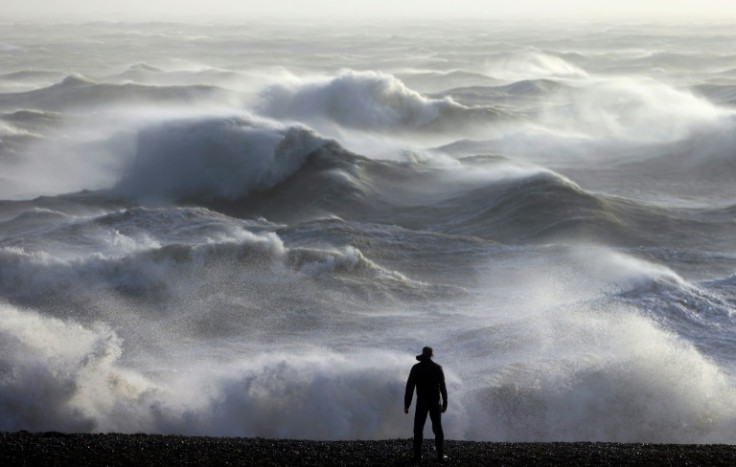
Storm Jocelyn has unleashed a new wave of travel disruptions across a significant portion of the UK, emerging less than 48 hours after Storm Isha claimed two lives and left thousands without electricity.
As the 10th named storm of the season, Storm Jocelyn triggered an amber warning for wind in parts of Scotland on Wednesday morning, while a yellow alert encompassed much of the UK into the afternoon.
The Met Office recorded powerful winds in north Wales, with gusts peaking at 97mph in Capel Curig in Snowdonia (Eryri) and 79mph in Aberdaron.
Additionally, Shap in Cumbria experienced winds reaching 77mph, underscoring the storm's formidable impact across diverse regions of the country.
In the aftermath of eight flight cancellations at Dublin Airport and four at Glasgow Airport on Tuesday evening, train services in Scotland came to a halt from 7pm.
Drivers are cautioned to defer their journeys and avoid parking near trees due to the intensifying weather conditions.
The arrival of Storm Jocelyn follows closely on the heels of Storm Isha, which claimed two lives and left one person seriously injured just two days ago.
The aftermath of Storm Isha has left thousands of individuals grappling with flooding and power outages, underscoring the relentless barrage of extreme weather events impacting the region.
Thousands of airline passengers landed in the wrong destination or even in the wrong country as Storm Isha caused havoc across Ireland and the UK.
The search for an individual reportedly in the sea off Porthcawl, South Wales, was halted in the early hours of Wednesday.
HM Coastguard revealed that rescue teams from Porthcawl, Port Talbot, Llantwit Major, and Llansteffan, along with an HM Coastguard helicopter from St Athan, collaborated in the search.
The RNLI's all-weather lifeboats from Mumbles and Barry Dock were also deployed after the report surfaced shortly before 6 pm on Tuesday. A decision regarding further action was scheduled for the first light.
Anticipated transport disruptions extended to the suspension of rail services to and from Scotland until at least noon on Wednesday.
Martin Thomson, the national operations manager for resilience at Transport Scotland, warned of more delays and cancellations across ferries, flights and rail services into Wednesday morning.
Network Rail Scotland addressed incidents such as flooding, fallen trees, and a shed roof blowing onto a high wall above a track on Tuesday evening.
Inspections for damage were slated to begin at first light, employing various methods, including teams on foot, road-rail vehicles, freight locomotives, empty passenger trains and helicopters once the winds abate, according to a statement.
ScotRail announced that all lines would undergo thorough checks before services resumed, indicating that it would be later in the day before any trains could run.
The disruption to public transportation also had a ripple effect on businesses and schools, with many forced to close their doors for the day.
Employers encouraged remote working where possible, recognising the challenges faced by employees trying to navigate the storm-battered transport system.
Power outages were reported in various areas as the storm brought down power lines and damaged electricity infrastructure.
Emergency crews worked tirelessly to restore power to affected areas, prioritising essential services such as hospitals and emergency facilities.
Residents were advised to take precautions and be prepared for potential outages as the storm continued its path across the UK.
The severe weather conditions prompted authorities to issue safety advisories, urging residents to stay indoors and avoid unnecessary travel.
Coastal areas were warned of the risk of large waves and potential flooding, while inland regions were cautioned about the hazards posed by strong winds and flying debris.
As communities come together to assess and repair the damage, the resilience of the nation will once again be tested in the face of nature's fury.







